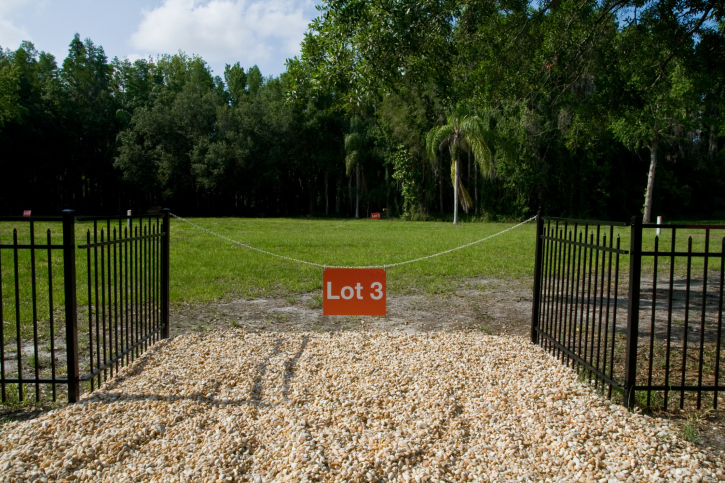 Finding the perfect home to purchase is easier said than done, and savvy home buyers understand the importance of researching the neighborhood as well as the home. All home buyers have unique things that they are looking for in an ideal neighborhood, and these factors will play a major role in how enjoyable a homeowner’s living experience is. Those who are shopping for a new home this summer may focus on a few points to find the perfect neighborhood to live in before deciding which home to purchase in that community.
Finding the perfect home to purchase is easier said than done, and savvy home buyers understand the importance of researching the neighborhood as well as the home. All home buyers have unique things that they are looking for in an ideal neighborhood, and these factors will play a major role in how enjoyable a homeowner’s living experience is. Those who are shopping for a new home this summer may focus on a few points to find the perfect neighborhood to live in before deciding which home to purchase in that community.
Get A Feel For The Ambiance And Energy Of the Neighborhood
Some home buyers want to find a lovely home in a quiet, mature community. Others may be searching for an active community with kids playing freely in their yards and people taking walks of jogging in their free time. Home buyers can get a great feel for the ambiance and energy of the neighborhood by driving around at different times of the day during the week as well as on the weekend.
Look At Neighborhood Amenities
The amenities in the neighborhood are important for many home buyers, and you can easily research amenities by driving through the area. Look for everything from a fitness center and community swimming pool to parks and hike and bike trails. Home buyers may research this aspect of the neighborhood further online to determine if the neighborhood regularly hosts community events or special activities.
Focus On Security
Security is a top concern for home buyers, and it is possible to research crime rates online or with assistance from a real estate agent. However, home buyers can also gauge the general feeling of security that residents have by looking for home security features on various homes in the community and by paying attention to how many people are outdoors on nice weather days. Many will find comfort in selecting a neighborhood where the residents feel safe and secure on a daily basis.
A primary factor to take into consideration when buying a home is its location. While the area of town is important to consider, the neighborhood is a more localized environment that will have a greater impact on a homeowner’s living experience. Those who are in the market to purchase a new home can begin researching neighborhoods with the assistance of your trusted real estate agent.
 There are numerous factors that you may review when choosing a new place to live. If you have children, the quality of the schools and the level of education that your kids will receive in the schools is important. However, you may not be certain how to determine if a school is good or not. When you are looking at schools, use this helpful checklist to guide you in making a great decision.
There are numerous factors that you may review when choosing a new place to live. If you have children, the quality of the schools and the level of education that your kids will receive in the schools is important. However, you may not be certain how to determine if a school is good or not. When you are looking at schools, use this helpful checklist to guide you in making a great decision. Real estate sales contracts can be confusing, and there seem to be contingencies and special circumstances for many different events built into a standard contract. One option that your real estate agent may ask if you are interested in is an escalation clause. This is typically an optional clause that you can choose to invoke if you desire, so you should take time to learn more about what it is before you make your offer.
Real estate sales contracts can be confusing, and there seem to be contingencies and special circumstances for many different events built into a standard contract. One option that your real estate agent may ask if you are interested in is an escalation clause. This is typically an optional clause that you can choose to invoke if you desire, so you should take time to learn more about what it is before you make your offer. When buying a new home, you may have a close eye focused on your budget and expenses, and your goal may be to keep related expenses to a minimum. However, you may also be well aware that a real estate purchase is a legal transaction, and you may be wondering if you need to pay for legal services from a real estate attorney. With a closer look, you can make a better decision that is right for your home buying plans.
When buying a new home, you may have a close eye focused on your budget and expenses, and your goal may be to keep related expenses to a minimum. However, you may also be well aware that a real estate purchase is a legal transaction, and you may be wondering if you need to pay for legal services from a real estate attorney. With a closer look, you can make a better decision that is right for your home buying plans. When many people think about investing in property, they think about purchasing income-producing real estate such as a residential property or an office building with tenants. There are indeed many benefits associated with investing in income-producing property. For example, these properties may produce rent that can offset your ownership expenses. However, buying raw land can also be an excellent long-term investment strategy.
When many people think about investing in property, they think about purchasing income-producing real estate such as a residential property or an office building with tenants. There are indeed many benefits associated with investing in income-producing property. For example, these properties may produce rent that can offset your ownership expenses. However, buying raw land can also be an excellent long-term investment strategy. While some home buyers only want to live in a brand new home and will custom build a home to their specifications, others are drawn to the historic character and charm of a classic home. Older homes may have incredible architectural detail and special features that you simply do not want to change. However, there are some essential features that should be upgraded as soon as possible after you take ownership of your classic home.
While some home buyers only want to live in a brand new home and will custom build a home to their specifications, others are drawn to the historic character and charm of a classic home. Older homes may have incredible architectural detail and special features that you simply do not want to change. However, there are some essential features that should be upgraded as soon as possible after you take ownership of your classic home.